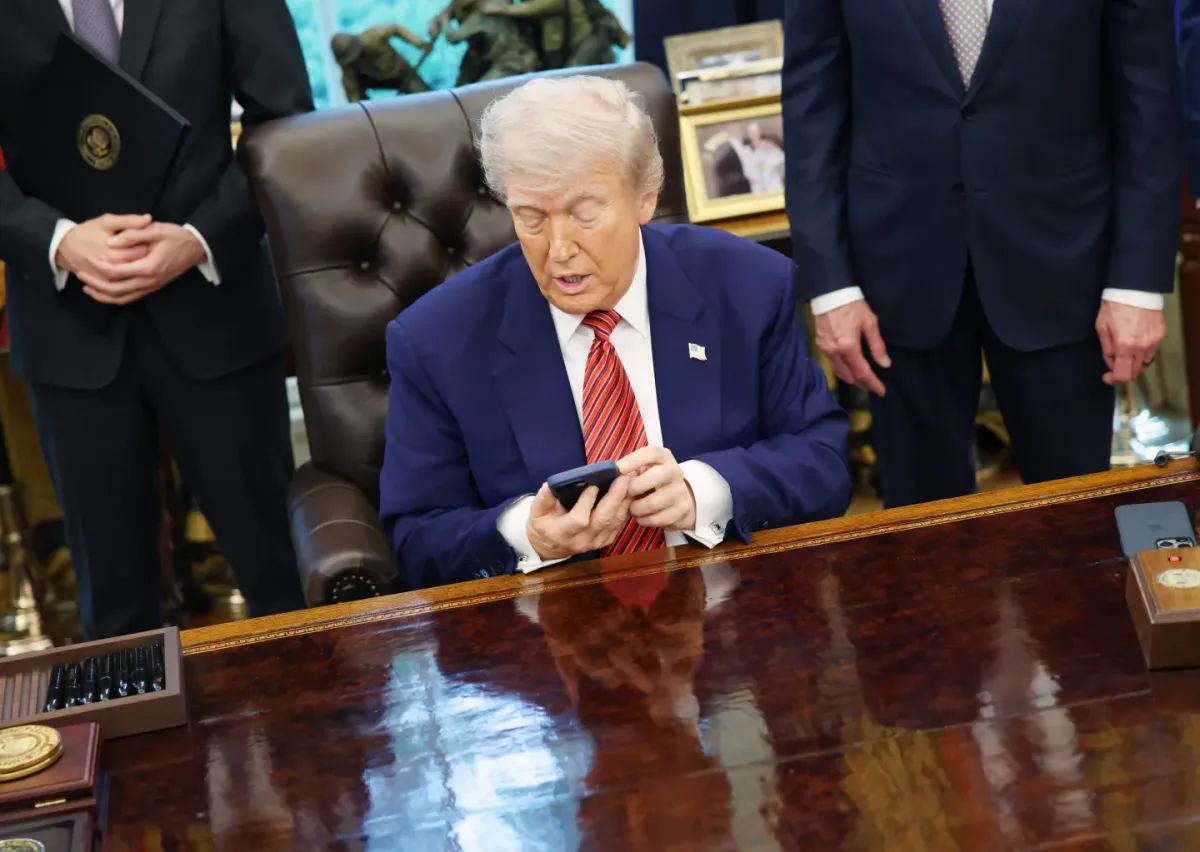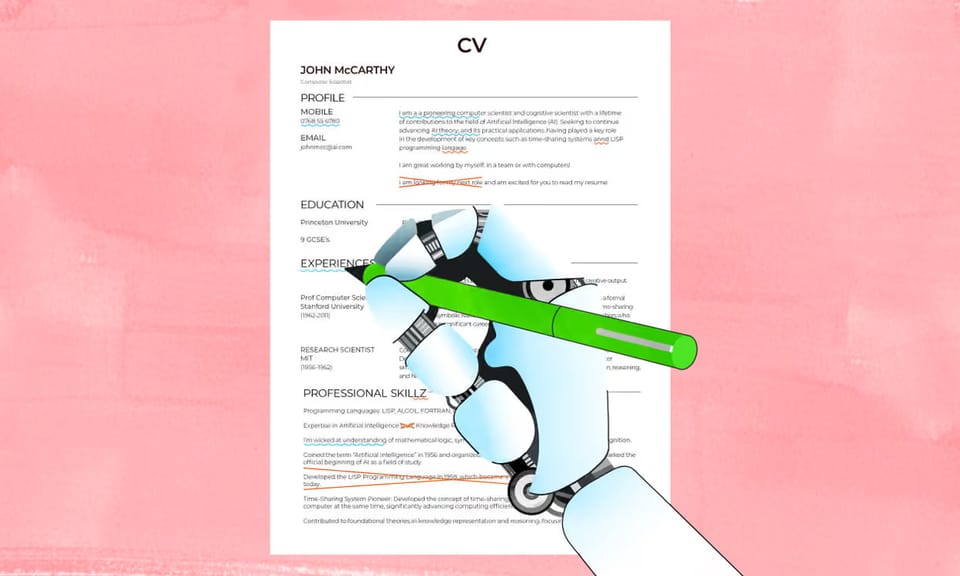Is Trump’s $499 Smartphone Just Another Gold-Covered Import?


Big headlines you don’t want to miss:
- Supreme Court shakes up trans healthcare rules
- Fed holds rates steady again, ignoring Trump’s push for cuts
- Trump’s new $499 phone says “Made in USA,” but it’s mostly from China
Let’s get into it.
Law
Has the Supreme Court Changed What Trans Kids Are Legally Allowed to Do?
Briefing: The U.S. Supreme Court just made a big decision about transgender healthcare for kids and teens. The case came from Idaho, where a law was passed to stop doctors from giving gender-affirming care like puberty blockers or hormone treatments to anyone under 18. The court said states can’t completely block this kind of care just because a person is transgender.
Details: In 2023, Idaho passed a law that banned gender-affirming care for minors. This included things like puberty blockers and hormone therapy, which many transgender teens use as part of their transition. Families and doctors sued the state, saying the law was unfair and unconstitutional. Lower courts agreed and blocked the law from taking effect.
The case went all the way to the Supreme Court. This week, the justices said Idaho can’t stop doctors from giving everyone this care, but the state can still make some rules. That means while a full ban is not allowed, some restrictions may still be legal. The Supreme Court sent the case back to lower courts to decide which parts of the law are okay under the Constitution.
Why It Matters: This ruling is a big deal for transgender youth and their families. It could make it easier for young people in some states to get the medical care they need. It also affects other states with similar bans like Alabama, Texas, and Kentucky. Those laws might now be challenged or changed.
The decision also helps set a legal standard for the whole country. It says states can’t treat transgender kids unfairly when it comes to healthcare. But it also leaves room for each state to decide how much control they have over what doctors can do. (The Seattle Times)
AI is starting to play a bigger role in transgender healthcare, especially for young people, but it’s not perfect. Some tele-health clinics, like GenderGP, use AI decision-support tools and natural language processing to help decide if someone should get hormone treatments. These tools read and analyze answers from online questionnaires and medical records, kind of like a smart quiz that scans what you say and finds patterns to suggest care options. But if the AI is trained on unfair or limited data, it might miss key details or make bad calls, especially for trans kids. Experts warn this could lead to unsafe treatment or leave some patients out. That’s why real doctors still need to double-check what the AI recommends. (Medium)
Finance
Is Trump Turning Your Phone Into His Next Power Play?
Briefing: The Federal Reserve just announced it’s keeping interest rates steady at 4.25% to 4.50%. This is the fourth time in a row the Fed has held off on any changes, even as former President Trump publicly pushed for rate cuts.
Details: The Fed is being cautious due to mixed signals from the economy. Inflation is slowing down, job growth is steady, and consumer spending is strong, but there are concerns about global tensions and new tariffs that could drive prices back up. Despite Trump calling Fed Chair Jerome Powell “stupid” and even joking that he could do the job himself, the Fed didn’t budge. Officials said they need more time and more data before making any moves. Many analysts now think rate cuts won’t happen until late 2025 or even 2026.
Why It Matters: For everyday people, this means loans, credit cards, and mortgage rates will stay high for a while longer. For businesses, the wait creates uncertainty around borrowing and investment. And politically, this shows the Fed is holding firm and making decisions based on economic data and not outside pressure. (Business Standard)
AI tools are already being used to analyze and predict Fed decisions. Models like FedNLP scan Federal Reserve meeting minutes, while JPMorgan’s ChatGPT-based Hawk-Dove Analyzer scores Fed speeches to spot rate trends. Germany’s Bundesbank even built MILA, an AI that tracks central bank language shifts. While these tools help with forecasting and sentiment analysis, central banks still rely on human judgment to set rates. (Reuters)
Tech
Is Trump’s $499 Smartphone Just Another Gold-Covered Import?
Briefing: The Trump family just started a new phone company called Trump Mobile. They also launched a new phone called the T1, which costs $499. They say the phone is made in the USA.
Details: The T1 phone is gold-colored and uses the Android system. It comes with a monthly plan that costs about $47. The Trump family says the phone will be assembled in states like Alabama and Florida.
But phone experts say that’s not true. They looked at the phone and thought it was almost the same as a phone already made in China. The parts inside, like the screen and camera, are things the U.S. doesn’t usually make. So, even if the phone is put together in the U.S., most of it likely comes from China.
Why It Matters: This is important because the Trump brand is saying “Made in the USA,” but the phone may mostly come from China. It shows how hard it is to make phones in America. And it reminds us to look closely when companies make big claims like this. (Fortune)
Can AI confirm where the Trump T1 phone is made and if it’s just a rebranded Chinese model? AI tools like Altana AI can trace where parts come from by analyzing supply chains, and platforms like TechInsights use AI to compare phone designs and components. Experts have already found that the Trump T1 closely matches the REVVL 7 Pro 5G, a phone made by China’s Wingtech, suggesting it was not fully made in the U.S. (Altana, Intelligencer)
*Disclaimer: The content in this newsletter is for informational purposes only. We do not provide medical, legal, investment, or professional advice. While we do our best to ensure accuracy, some details may evolve over time or be based on third-party sources. Always do your own research and consult professionals before making decisions based on what you read here.




